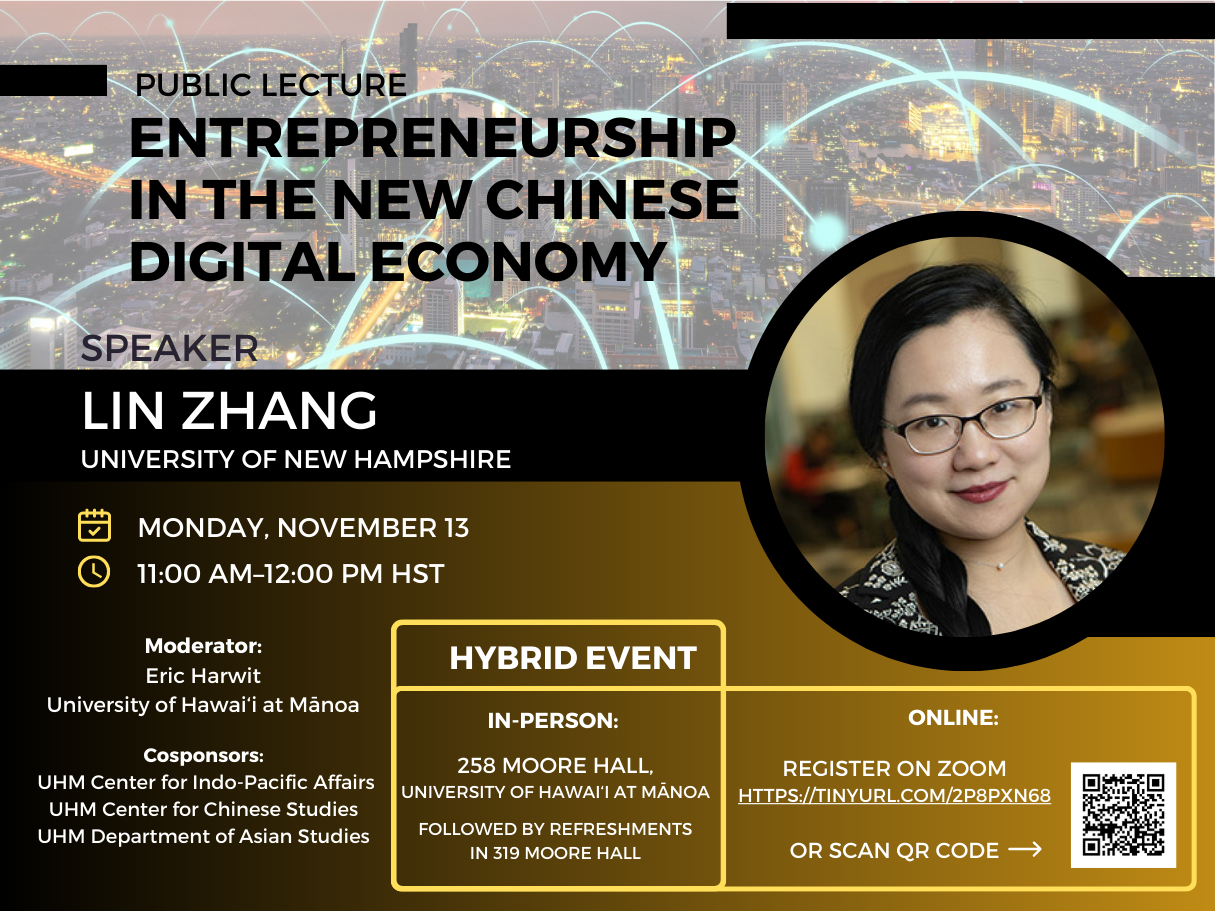
Monday, November 13, 2023
11:00 am–12:00 pm HST | 4:00–5:00 pm EST
Hybrid Event: 258 Moore Hall or Online
From start-up founders in the Chinese equivalent of Silicon Valley to rural villages experiencing an e-commerce boom to middle-class women reselling luxury goods, the rise of Internet-based entrepreneurship has affected every part of China. For many, reinventing oneself as an entrepreneur has appeared to be an appealing way to adapt to a changing economy and society. Yet in practice, digital entrepreneurship has also reinforced traditional Chinese ideas about state power, labor, gender, and identity. Join us on Monday, November 13 at 11:00 am–12:00 pm HST for a presentation by Dr. Lin Zhang (Associate Professor of Communication, University of New Hampshire) who will tell one story about the entrepreneurial labor of reinvention from her recently published book The Labor of Reinvention: Entrepreneurship in the New Chinese Digital Economy. She will focus on how variously-positioned entrepreneurs in Beijing’s Zhongguancun high-tech district co-evolved with the national and municipal governments’ policies shifts after the 2008 global financial crisis to experiment with a new developmental path for China and move beyond its previous position as merely the “factory of the world”. She problematizes the worldwide euphoria about digital entrepreneurship while complicating the dichotomy of “China threat vs. China model”. Instead, she argues for a “China Paradigm” that treats the Chinese experiences as an ongoing and open-ended experiment to rearticulate global principles to local trajectories in dealing with worldwide challenges posed by decades of neoliberal capitalism. The presentation will be followed by a discussion moderated by Dr. Eric Harwit (Professor of Asian Studies, University of Hawai‘i at Mānoa). For in-person participants, refreshments will be available afterward in 319 Moore Hall from 12:00–1:00 pm HST.
Lin Zhang is an associate professor of communication and media studies at the University of New Hampshire. Her research centers on critical innovation studies, information/platform capitalism, and intersectionality, focusing on China and ethnic Asian people in a global, comparative context and in spaces of transnational encounters. A communication scholar by training, her interdisciplinary research engages Asian/Asian American Studies, Science and Technology Studies (STS), Economic Geography, and Anthropology. By conceptualizing technologies in terms of global capitalism, Zhang emphasize the mutual imbrication of economy, culture, and politics in digital technologies, and also highlight the historical continuities and ruptures of information capitalism as an uneven world system. She holds a Ph.D. in communication from the University of Southern California, an M.A. in media, culture, and communication from New York University, an M.Phil in communication from the Chinese University of Hong, and a B.A. in English from Beijing Foreign Studies University.
This event is cosponsored by the University of Hawai‘i at Mānoa Center for Indo-Pacific Affairs, Center for Chinese Studies, and Department of Asian Studies.
